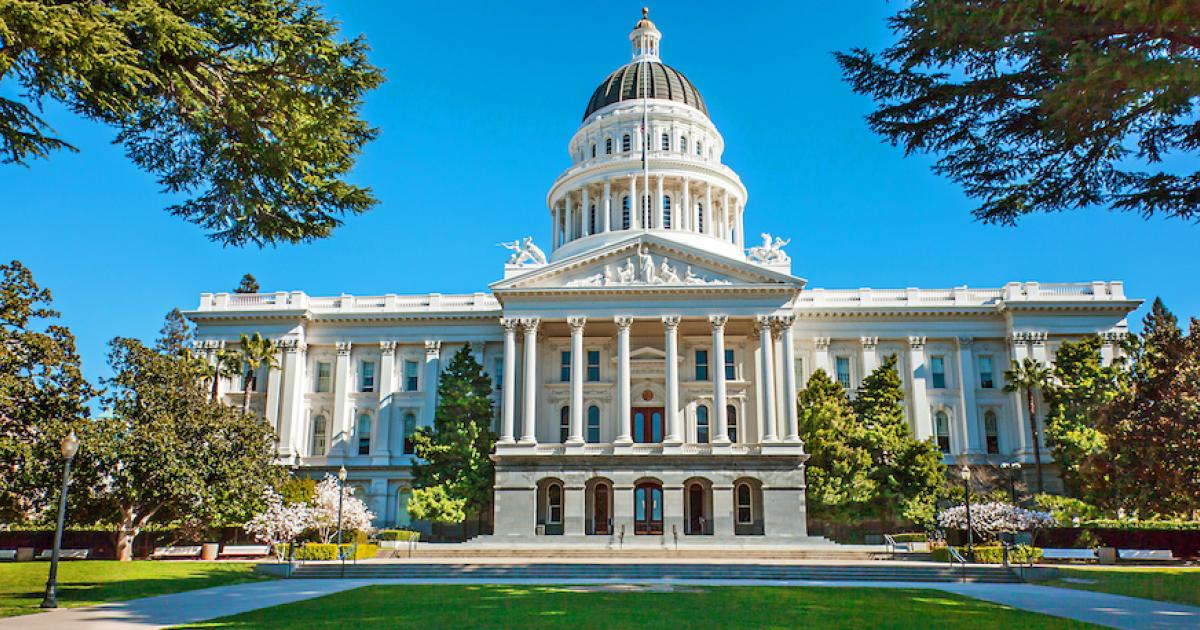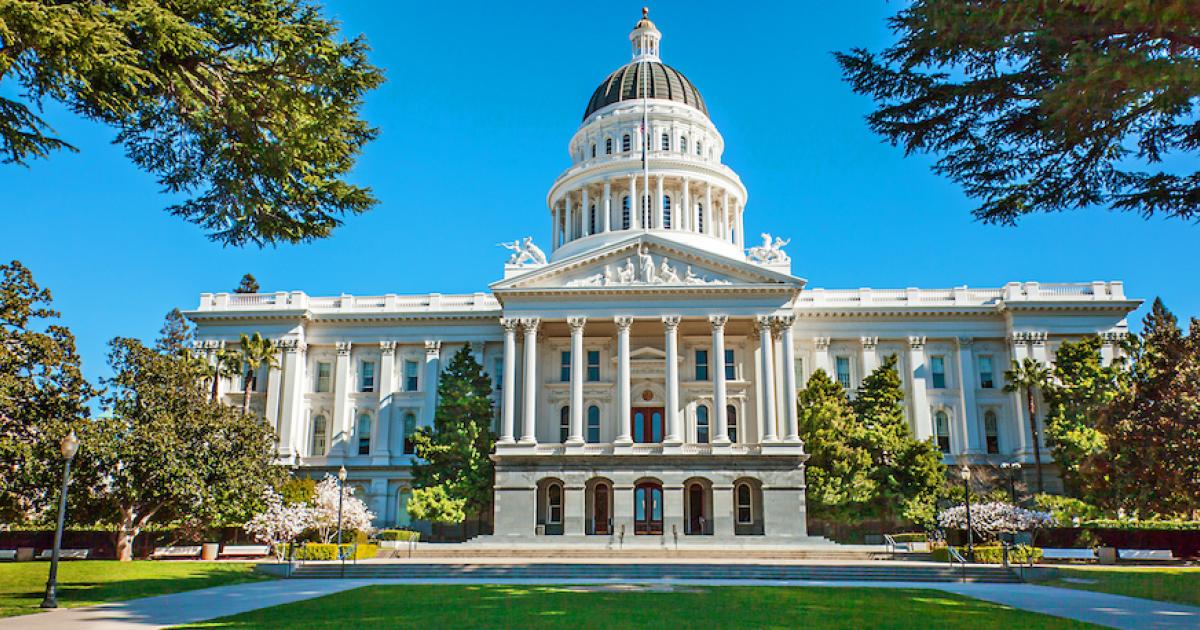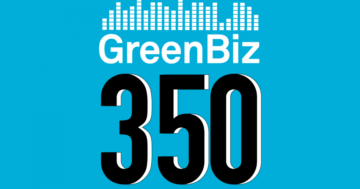
This article has been updated and was originally published on Sept. 6, 2023.
Over the weekend, California Gov. Gavin Newsom signed California Senate Bill 253 into law. The law is unprecedented, requiring strict greenhouse gas reporting practices for corporations in the state. It surpasses the Securities and Exchange Commission's (SEC) proposed climate disclosure rules, due to emerge later this month, which exclude Scope 3 disclosures.
California Senate Democrats introduced the Climate Corporate Data Accountability Act, or SB 253, in January. It requires California businesses with revenue of $1 billion or more to disclose Scope 1 and 2 emissions beginning in 2026, followed by Scope 3 emissions in 2027. Every corporation must comply, whether headquartered in California or simply operating there. Companies as varied as Apple and United Grocers, obviously have to comply. So do the Netherlands-based Ikea and New York-based Eileen Fisher, which sell products as varied as furniture and clothing to California companies and consumers.
"We are not creating anything new,"California State Sen. Scott Wiener, a Democrat, said in a July legislative committee meeting regarding SB 253. "This is an established methodology that corporations have been using for quite some time."
The first iteration of the bill failed to pass by one vote in the state legislature in 2022, but this year’s version was a different story. “I think this year we had an even broader coalition [and] a lot more business support,” Wiener told GreenBiz.
Adobe and Microsoft, among other corporations, publicly supported the bill via a letter to lawmakers Aug. 14. "We know that consistent, comparable, and reliable emissions data at scale is necessary to fully assess the global economy’s risk exposure and to navigate the path to a net-zero future," it said.
How will global manufacturers prepare for the new law’s impact? Chris Adamo, Danone’s vice president of public affairs and regenerative agriculture policy, told GreenBiz that GHG disclosure requirements are not new for the global food and beverage giant. “We’ve been anticipating this for years,” he said, citing the EU reporting mandates with which it must already comply. Danone also makes voluntary disclosures through the Science Based Targets Initiative.
Adamo did admit, though, that the additional requirements of SB 253 will create some challenges. “[These disclosures mean] more investment and more thinking of what we’ll have to do there,” he said. He specifically highlighted the challenge of harmonizing data for reporting. “How similar are these different reporting and disclosure regimes that are being created, whether it's California, Europe, Science Based Targets Initiatives and so on?”
Once the SEC adds its anticipated separate disclosure requirements this month, companies will be required to report Scope 1, 2, and 3 GHG emissions to multiple different parties.
While Adamo, with Danone, supported the passage of SB 253, the newly signed law did have opponents. Politico reported that the California Air Resources Board staff is "less than thrilled" with SB 253, and at one point sought to quietly "undermine support for it in the legislature."
“There was significant opposition from the Chamber of Commerce, in the oil industry and [from] the bankers and other industries who didn’t want these disclosures to happen, because they know that some of their members won’t look good,” Wiener said.
The California Chamber of Commerce and a cohort of businesses issued a letter this summer urging legislators to strike the bill down. Its reasons included an outsized impact on businesses, the high risk of inherently inaccurate data and the likelihood that SB 253 will not directly reduce emissions.
- SEO Powered Content & PR Distribution. Get Amplified Today.
- PlatoData.Network Vertical Generative Ai. Empower Yourself. Access Here.
- PlatoAiStream. Web3 Intelligence. Knowledge Amplified. Access Here.
- PlatoESG. Carbon, CleanTech, Energy, Environment, Solar, Waste Management. Access Here.
- PlatoHealth. Biotech and Clinical Trials Intelligence. Access Here.
- Source: https://www.greenbiz.com/article/gov-newsom-ratifies-emissions-law-impacts-5300-california-companies
- :has
- :is
- :not
- $1 billion
- 1
- 14
- 2022
- 2023
- 2026
- 300
- a
- accountability
- Act
- Additional
- Adds
- admit
- Affairs
- agriculture
- AIR
- already
- also
- among
- an
- and
- Anticipated
- anticipating
- anything
- Apple
- ARE
- article
- AS
- assess
- At
- Aug
- bankers
- based
- BE
- because
- been
- Beginning
- being
- BEVERAGE
- Bill
- Billion
- board
- broader
- business
- businesses
- but
- by
- CA
- california
- challenge
- challenges
- Chamber
- Chris
- citing
- Climate
- Clothing
- coalition
- Cohort
- Commerce
- commission
- committee
- Companies
- comparable
- comply
- consistent
- Consumers
- Core
- Corporate
- CORPORATION
- Corporations
- create
- created
- Creating
- data
- Democrat
- Democrats
- DID
- different
- directly
- Disclose
- disclosure
- Disclosures
- do
- due
- EC
- economy’s
- emerge
- Emissions
- established
- Ether (ETH)
- Europa
- Europe
- Even
- Every
- exchange
- Exchange Commission
- Exposure
- Failed
- First
- followed
- food
- For
- from
- fully
- future
- GAS
- Gavin Newsom
- GHG
- GHG emissions
- giant
- Global
- good
- greenhouse gas
- had
- happen
- Have
- he
- headquartered
- High
- Highlighted
- HTTPS
- ikea
- Impact
- Impacts
- in
- inaccurate
- included
- industries
- industry
- inherently
- Initiative
- initiatives
- into
- introduced
- investment
- IT
- iteration
- ITS
- January
- July
- Know
- later
- Law
- lawmakers
- Legislative
- legislators
- Legislature
- less
- letter
- likelihood
- Look
- Lot
- MAKES
- Manufacturers
- mean
- meeting
- Members
- Methodology
- Microsoft
- Month
- more
- multiple
- must
- Navigate
- necessary
- net-zero
- New
- New York-Based
- newly
- of
- Oil
- on
- ONE
- operating
- opponents
- opposition
- or
- originally
- Other
- parties
- pass
- passage
- path
- PBS
- plato
- Plato Data Intelligence
- PlatoData
- Point
- policy
- practices
- Prepare
- president
- Products
- proposed
- public
- publicly
- published
- quietly
- quite
- reasons
- reduce
- regarding
- regenerative
- Regenerative Agriculture
- regimes
- reliable
- report
- Reporting
- required
- Requirements
- requires
- Resources
- revenue
- Risk
- rules
- s
- Said
- Scale
- Science
- scope
- scott
- SEC
- Securities
- Securities and Exchange Commission
- sell
- Senate
- separate
- sept
- signed
- significant
- similar
- simply
- So
- some
- sought
- specifically
- Staff
- State
- Story
- strict
- strike
- summer
- support
- Supported
- targets
- than
- that
- The
- the Law
- The State
- their
- There.
- These
- they
- think
- Thinking
- this
- this year
- though?
- thrilled
- Through
- time
- to
- told
- Undermine
- United
- unprecedented
- updated
- urging
- using
- version
- via
- vice
- Vice President
- voluntary
- Vote
- want
- was
- we
- weekend
- What
- whether
- which
- WHO
- will
- windows
- with
- year
- years
- zephyrnet









